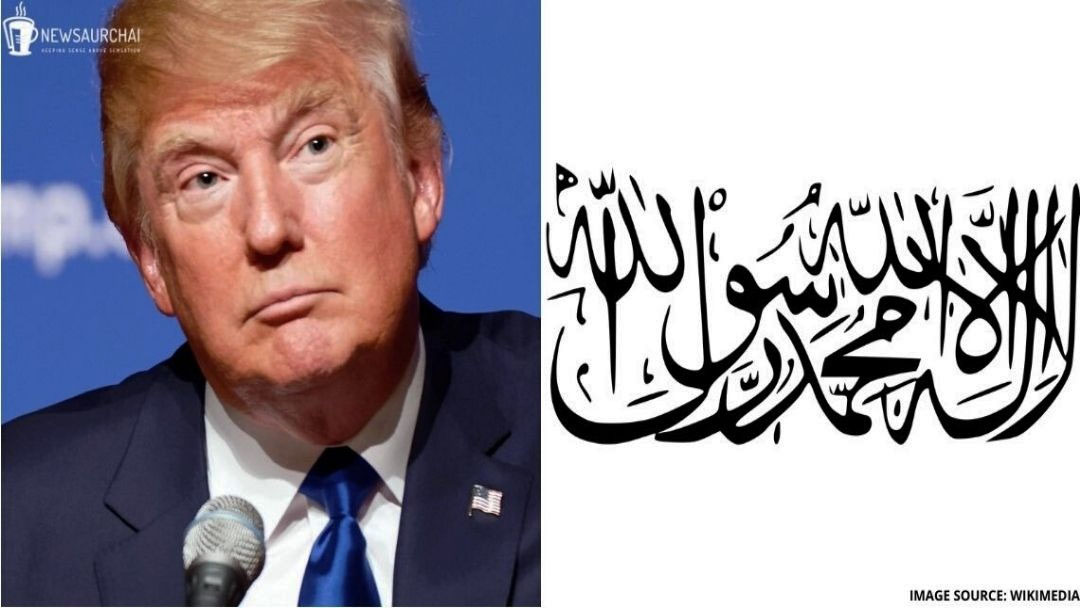
The United States and the Taliban signed a deal on February 29, that strives to end the almost two-decade-old conflict in Afghanistan. America’s longest war which began following the attacks of September 11 (2001) and killed thousands of people, vexed three White House administrators, that left uncertainty and mistrust in all factions.
The deal that was signed in the Qatari capital Doha states that the US troops will be pulled out of Afghanistan after nearly 19 years. In return, the Taliban will provide a security guarantee and participate in intra-Afghan talks to establish peace throughout the country. The deal also mentions about the agreement of releasing 5,000 prisoners by the Afghan government. However, this deal has an uncertain fate as the US-backed Afghan government in Kabul had proposed a phased release, contradictory to the agreement and it got rejected by the Taliban.
Afghan President Ashraf Ghani said that they would release 1,500 prisoners in the first phase provided that the prisoners guarantee that they would not return to fighting. Taliban opposed this proposal stating that according to the deal, the government shall release all 5,000 prisoners at once and without any condition.
Ghani nearly declared the winner in allegedly disputed presidential election results, but his main rival, Abdullah Abdullah, has stated him to be a fraud and threatened to form his parallel government. This political feud has also stalled the US-driven peace process.
Complete peace may take up years to be established in the country, but the US-Taliban deal is a beginning. It has risen the hopes of the prisoners to be released as well as the war-stricken Afghan people. They have been shown false hopes of peace in the past when the US overthrew the Taliban in 2001, or when the Soviet Union was eradicated from the country. However, all peace negotiations failed, and a civil war started resulting in the current war-torn state of Afghanistan. Nonetheless, they are hopeful this time.
On March 25, Ghani’s National Security Council tweeted that 100 prisoners would be freed “on humanitarian grounds–including health, age and vulnerability” to coronavirus and the release will take place by March 31–a number far less than the 1,500 prisoners that Ghani had said before.
Mike Pompeo, US Secretary of State, could not mediate between the rival political parties to create an “inclusive” government and announced a 1 billion dollars cut aid to Afghanistan, that could be reversed. The US will, however, try to convince all the parties, including the Taliban for peace and reconciliation.
However, the Taliban has refused to negotiate with the 21-member team formed by the Afghan government claiming that the team was not selected including “all Afghan factions” as stated by Taliban spokesperson Zabihullah Mujahid.
Abdullah Abdullah has not yet confirmed his support for the delegation, which diplomats believe would be crucial given his strong influence in the north and west in the country.
A captive of Pul-e-Charkhi prison of Afghanistan said, “There are Taliban fighters in this prison, and they proudly say that we are with Taliban, but there are innocent people like me as well here, and they need to be released.” He was arrested in 2016 by Afghan security forces for giving shelter to the Taliban who were escaping a gun battle with the troops. The prisoners urge that he had no choice but to oblige to Taliban gunmen’s demand. He was utterly helpless in front of them.
The notorious Pul-e-Charkhi prison is a high-security prison in Kabul known for its precarious conditions and has a history of violence and torture with discovered mass graves. He is among the 5,000 prisoners that the Taliban wants to be released as he had helped their fighters.
Another prisoner who is serving 15 years in the same prison for “carrying explosives”. He was tortured relentlessly for making him confess. His uncle is a part of Haqqani Network, a Taliban affiliate, a designated terror organization by the US. However, he, as well as his brother, claims that they and their 18-member family have no ties with their uncle or Taliban.
Human Rights Watch has expressed concerns regarding the “fundamental problems” in the justice system of Afghanistan. Though Afghanistan has included war crimes and crimes against humanity in their 2017 penal code, the investigations focus only on ISIL attacks and not on crimes committed by the government or Taliban forces.
This failure has created a grave problem to ascertain whether prisoners, who can have potential releases, “may have committed war crimes won’t get any guidance from the vague charges under which many are held.”
The government is also allegedly imprisoning many due to “overly broad terrorism laws”, secret trials, tortures, making it challenging to determine serious crimes committed by prisoners.
The ultimate fate of the prisoners is yet to be seen.





